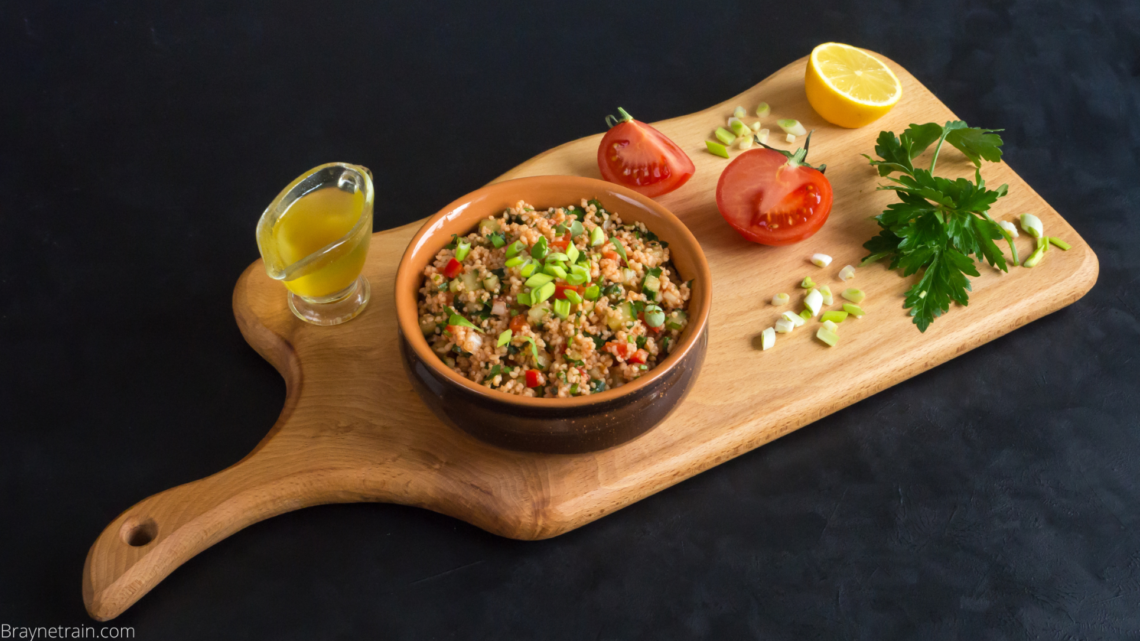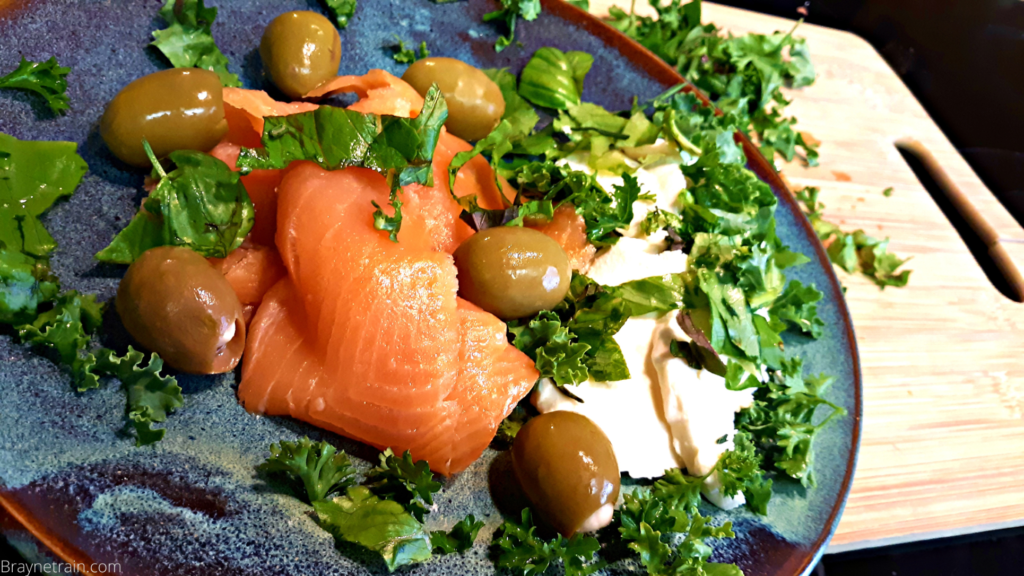
The MIND Diet; A Step by Step Guide for Beginners.
Weight loss diets are all the rage, but not every diet is for weight loss. In fact, many people are looking for a diet that helps them improve their cognitive function and memory.
The MIND diet is not designed for weight loss, it is designed to help protect your brain from age-related conditions like dementia and Alzheimer’s disease.
If you want to learn more about the MIND diet, continue reading!

What is The MIND Diet?
The MIND diet was developed specifically to help protect against Alzheimer’s disease and dementia.
This diet is a hybrid of the Mediterranean diet and the DASH diet, both of which are known for their health benefits.
The MIND diet emphasizes brain-healthy foods such as leafy greens, nuts, berries, and whole grains.
It also includes healthy fats such as olive oil and avocado, and limits foods that are high in saturated fats and sugar.
Studies have shown that following the MIND diet can decrease the risk of Alzheimer’s disease and other forms of dementia.

The Mediterranean Diet
The Mediterranean diet is a healthy diet that has been associated with improved cardiovascular health.
It was initially formulated in the 1960s, and it’s based on the traditional cuisines of countries bordering the Mediterranean Sea, such as Greece, Turkey, Italy, and Spain.
The Mediterranean diet is rich in fruits, vegetables, nuts, beans, and whole grains. It also includes moderate amounts of fish, poultry, and red wine.

The Mediterranean diet is high in healthy fats, including olive oil and avocado oil. Also, this meal plan limits all processed and refined foods such as fast food and sugar.
One of the main benefits of the Mediterranean diet is that it is high in monounsaturated fats. Studies have indicated that monounsaturated fats can help improve heart health.
In addition, the Mediterranean diet also helps lower the risk of cancer and Alzheimer’s disease.
Studies indicate, If followed strictly, the Mediterranean diet can reduce the risk of Alzheimer’s disease by nearly 54%.

The DASH Diet
The DASH (Dietary Approach To Stop Hypertension) diet is an evidence-based approach to eating and has been shown to lower blood pressure and improve other health markers.
The diet is rich in fruits, vegetables, whole grains, and lean proteins, and limits sodium, saturated fats, and refined sugars.
Studies have shown that the DASH diet can help lower blood pressure, reduce LDL cholesterol levels, and improve cardiovascular risk factors.
The DASH diet was originally designed for people with hypertension, but it’s now being followed by individuals looking to improve their overall health.
Studies have indicated that the DASH diet reduces Alzheimer’s risk by 34% if it is followed strictly.
It is important to note, that neither DASH nor the Mediterranean diets reduce the risk of Alzheimer’s disease if followed loosely!

Benefits of The MIND Diet:
- Reduces the risk of Alzheimer’s disease
- The MIND diet is a hybrid of the Mediterranean diet and the DASH diet. It is effective in reducing the risk of Alzheimer’s disease.
- Easy to follow
- The MIND diet is easy to follow and does not require special supplements.
- Easy to prepare
- The food items on the MIND diet are easy to find and prepare.
- The MIND diet has been shown to reduce the risk of Alzheimer’s disease by 50% if followed modestly and by 35% if followed strictly.

What Foods Can you have on the MIND diet?
- Dark green vegetables (arugula, spinach, red leaf lettuce, broccoli, kale, brussel sprouts, cabbage, turnip greens, etc.)
- Herbs
- Colorful vegetables (carrots, beets, bell peppers, mushrooms, pumpkin, cauliflower, etc.)
- Beans
- Whole grains (Oats, Whole Wheat, etc.)
- Poultry
- Olive oil
- Berries
- Nuts
- Fish
foods to Avoid on The MIND Diet:
- Red meats
- Pork
- Butter
- Stick margarine
- Sugar
- Pastries
- Cheese
- Processed carbohydrates
- Fast foods
- Fried foods

The MIND Diet sample Eating Plan:
Daily
- 1 serving of dark leafy vegetables daily. (1 cup of raw or ½ cup cooked)
- 1 serving of additional colorful vegetables daily.
- 3 servings of whole grains daily.
Weekly
- 5 servings of nuts per week.
- 3 servings of beans per week.
- 2 servings of poultry per week. ( 3-4 oz = 1 serving)
- 2 servings of berries per week.
- 1 serving of fish per week.
Takeaway
The MIND diet is a hybrid of the Mediterranean and DASH diets. Studies have shown that both of these diets help reduce the risk of Alzheimer’s disease and dementia. Also, this meal plan emphasizes foods that are good for the brain, such as leafy green vegetables, berries, nuts, and whole grains. The MIND diet also includes fish, poultry, and olive oil, all of which are good sources of healthy fats. The MIND diet limits red meat, sugar-sweetened beverages, saturated fats, and processed foods. So if you are trying to improve your cognitive function, try the MIND diet. Thank you for reading!
References
Liu X, Morris MC, Dhana K, Ventrelle J, Johnson K, Bishop L, Hollings CS, Boulin A, Laranjo N, Stubbs BJ, Reilly X, Carey VJ, Wang Y, Furtado JD, Marcovina SM, Tangney C, Aggarwal NT, Arfanakis K, Sacks FM, Barnes LL. Mediterranean-DASH Intervention for Neurodegenerative Delay (MIND) study: Rationale, design and baseline characteristics of a randomized control trial of the MIND diet on cognitive decline. Contemp Clin Trials. 2021 Mar;102:106270. doi: 10.1016/j.cct.2021.106270. Epub 2021 Jan 9. PMID: 33434704; PMCID: PMC8042655.
Dhana K, James BD, Agarwal P, Aggarwal NT, Cherian LJ, Leurgans SE, Barnes LL, Bennett DA, Schneider JA. MIND Diet, Common Brain Pathologies, and Cognition in Community-Dwelling Older Adults. J Alzheimers Dis. 2021;83(2):683-692. doi: 10.3233/JAD-210107. PMID: 34334393; PMCID: PMC8480203.
Dernini S, Berry EM, Serra-Majem L, La Vecchia C, Capone R, Medina FX, Aranceta-Bartrina J, Belahsen R, Burlingame B, Calabrese G, Corella D, Donini LM, Lairon D, Meybeck A, Pekcan AG, Piscopo S, Yngve A, Trichopoulou A. Med Diet 4.0: the Mediterranean diet with four sustainable benefits. Public Health Nutr. 2017 May;20(7):1322-1330. doi: 10.1017/S1368980016003177. Epub 2016 Dec 22. PMID: 28003037.




